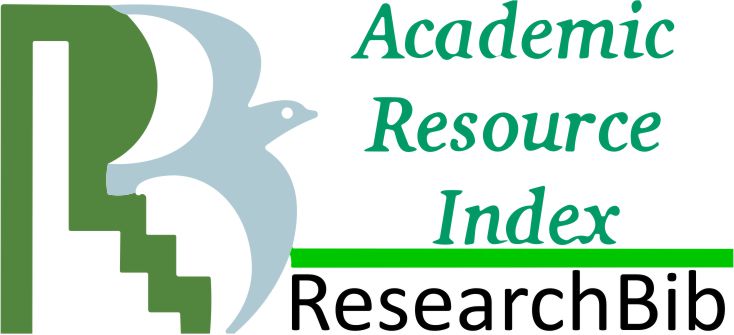DOI
10.21002/jaki.2024.12
Abstract
This research investigates the role of behavioral accounting as a catalyst in the organizational transformation process towards sustainability using phenomenological methods. The study aims to explore how behavioral accounting identifies individual behavioral factors, designs efficient sustainability systems, and enhances organizational commitment to sustainable practices. The research employs observation, secondary data analysis, and semi-structured interviews with organizational internal team, analyzed through Interpretative Phenomenological Analysis (IPA). Findings indicate that behavioral accounting contributes to organizational sustainability by enhancing transparency in accounting information, thereby minimizing the risk of fund misuse and ensuring efficient resource allocation. This research supports behavioral accounting as pivotal in shaping a sustainable organizational culture, offering both theoretical insights and practical implications.
References
Ajzen, I. 1985. From Intentions to Actions: A Theory of Planned Behavior. Action Control: from Cognition to Behavior, 11–39.
Ajzen, I. 1991. The Theory of Planned Behavior. Organizational Behavior and Human Decision Processes, 50 (2), 179–211.
AlNuaimi, B. K. et al. 2022. Mastering Digital Transformation: The Nexus between Leadership, Agility, and Digital Strategy. Journal of Business Research, 145 (September 2021), 636–648.
Anderson, R. 1998. Mid-course Correction: Toward a Sustainable Enterprise: The Interface Model. Chelsea Green Publishing.
Anis, I. and E. R. Shauki 2023. The Contingent-Fit of Contextual Factors, Sustainability Innovation, and Unit Business Performance: A Research Model and Empirical Evidence. International Journal of Contemporary Accounting, 5 (1).
Anis, I., and V. Avrillia. 2024. Analyzing Impact of ESG Principles on Performance: A Perspective from Sustainability Balanced Scorecard. Jurnal Akuntansi dan Keuangan Indonesia, 21 (1).
Anis, I. et al. 2023. The Sustainability Awareness of Banking Institutions in Indonesia and Its Implication on Profitability by the Mediating Role of Operational Efficiency. Asian Journal of Accounting Research, 8 (4), 356–372.
Anis et al. 2024. Global Digital Era, Social, Peace and Business Perspectives in Society. NCM Publishing House. ISBN: 978-625-98685-2-3.
Ashour, M. L. 2018. Triangulation as a Powerful Methodological Research Technique in Technology-Based Services. Business and Management Studies: An International Journal, 6 (1), 193–208.
Ateş, H. 2020. Merging Theory of Planned Behavior and Value Identity Personal Norm Model to explain Pro-Environmental Behaviors. Sustainable Production and Consumption, 24, 169–180.
Bamberg, S., M. Hunecke, dan A. Blöbaum. 2007. Social Context, Personal Norms, and The Use of Public Transportation: Two Field Studies. Journal of Environmental Psychology, 27, 190–203.
Belkaoui, A. (1989). Accounting and language. Journal of Accounting Literature, 8 (1), 281-292.
Berman, E., and D. D. Rucker. 2014. The Role of Psychological Factors in Organizational Decision-Making for Sustainability. Journal of Organizational Behavior, 35 (1), 1–19.
Bleiker, J., S. Morgan-Trimmer, K. Knapp, and S. Hopkins. 2019. Navigating the Maze: Qualitative Research Methodologies and Their Philosophical Foundations. Radiography, 25 (xxxx), S4–S8.
Bohunovsky, L., V. Radinger-Peer, and M. Penker. 2020. Alliances of Change Pushing Organizational Transformation Towards Sustainability Across 13 Universities. Sustainability (Switzerland), 12 (7).
Bonner, S. E., and B. L. Lewis. 2021. Behavioral accounting research: Insights and future directions. Accounting Horizons, 35 (2), 55–72.
Caroll, A. B. 2021. Corporate social responsibility: Perspectives on the pyramid of CSR. International Journal of Corporate Social Responsibility, 6 (1), 1–8.
Cheema, S., B. Afsar, and F. Javed. 2020. Employees’ corporate Social Responsibility Perceptions and Organizational Citizenship Behaviors for the Environment: The Mediating Roles of Organizational Identification and Environmental Orientation Fit. Corporate Social Responsibility and Environmental Management, 27 (1), 9–21.
Claudy, M. C., M. Peterson, and M. Pagell. 2016. The Roles of Sustainability Orientation and Market Knowledge Competence in New Product Development Success. Journal of Product Innovation Management, 33, 72–85.
Clayton, T., and N. Radcliffe. 1996. Sustainability: A Systems Approach. Earthscan.
Colville, I. 1981. Reconstructing “Behavioral Accounting.” Accounting, Organizations and Society, 6 (2), 119–132.
Creswell, J. W. 2013. Qualitative Inquiry and Research Design: Choosing Among Five Approaches. Sage Publications.
Dadashi, M., A. Pakmaram, N. Rezaei, and R. Abdi. 2023. Providing a Behavioral Model of Mental Accounting Decision-Making Based on Psychological Components Through Data Theory and Meta-Composition. Int. J. Nonlinear Anal. Appl, 14 (December 2021), 2008–6822.
de Groot, J. I. M., and L. Steg. 2009. Mean or Green: Which Values Can Promote Stable Pro-Environmental Behavior? Conservation Letters, 2 (2), 61–66.
Dewi, T. K., and M. G. Wirakusuma. 2018. Pengaruh Kecerdasan Intelektual, Kecerdasan Emosional dan Kecerdasan Spritual Pada Perilaku Etis dengan Pengalaman Sebagai Variabel Pemoderas. E-Jurnal Ekonomi Dan Bisnis Universitas Udayana, 7.9, 2089–2116.
Dyllick, T., and K. Muff. 2016. Clarifying the Meaning of Sustainable Business: Introducing a Typology From Business-as-Usual to True Business Sustainability. Organization & Environment, 29 (2), 156–174.
Du, K., Y. Cheng, and X. Yao. 2021. Environmental Regulation, Green Technology Innovation, and Industrial Structure Upgrading: The Road to the Green Transformation of Chinese Cities. Energy Economics, 98, 105247.
Elkington, J. 1997. Cannibals with F: The Triple Bottom Line Of 21st Century Business. Capstone.
Elkington, J. 2018. The Triple Bottom Line: Does It All Add Up? Routledge.
Endiramurti, S. R., A. B. Rosadi, and A. N. Probohudono. 2019. Going Concern Company and its Relation to Sustainability Report Disclosure: Evidence from SOEs in Indonesia. International Journal of Economics, Business and Accounting Research (IJEBAR), 3 (01), 12.
Ferreira Nunes, A. K., R. de Cássia Amorim Barroso, and F. Fernandes Santos. 2019. The Use of Triangulation as a Tool for Validation of Data in Qualitative Research in Education . The 4th World COnference on Qualitative Research, 334–336.
Garvey, A. M., L. Parte, B. McNally, and J. A. Gonzalo-Angulo. 2021. True and fair Override: Accounting Expert Opinions, Explanations from Behavioral Theories, and Discussions for Sustainability Accounting. Sustainability (Switzerland), 13 (4), 1–23.
Gigerenzer, G., and R. Selten. 2001. Rethinking Rationality: From Bounded Rationality to the Adaptive Toolbox. In G. Gigerenzer and R. Selten (Eds.), Bounded Rationality: The Adaptive Toolbox. MIT Press, 1–12.
Giorgi, A. 2009. The Descriptive Phenomenological Psychological Method. Journal of Phenomenological Psychology, 40 (1), 33–58.
Grougiou, V., and N. Soderstrom. 2018. Behavioral Economics And Sustainability: Bridging the Gap Between Theory and Practice in Organizational Transformations. Sustainability, 10 (5), 1360.
Glover, S. M., D. F. Prawitt, and M. B. Romney. 2020. Auditing and Assurance Services: A Systematic Approach (14th ed.). Pearson Education.
Hamilton, A. B., and E. P. Finley. 2019. Qualitative Methods in Implementation Research: An Introduction. Psychiatry Research, 280 (8), 112–120.
Hanlon, M., K. Yeung, and L. Zuo, L. 2022. Behavioral Economics of Accounting: A Review of Archival Research on Individual Decision Makers. Contemporary Accounting Research, 39 (2), 1150–1214.
Haseeb, M., S. Kot, H. I. Hussain, and K. Jermsittiparsert. 2019. The Role of Technological Innovation in Environmental Pollution, Energy Consumption and Sustainable Economic Growth: Evidence from South Asian Economies. Energies, 12 (3598), 1–21.
Hawken, P. 1993. The Ecology of Commerce: A Declaration of Sustainability. Harper Business.
Hitchings, R., and A. Latham. 2020. Qualitative Methods I: On Current Conventions in Interview Research. Progress in Human Geography, 44 (2), 389–398.
Honeyman, R. 2014. The B Corp Handbook: How to Use Business As A Force for Good. Berrett-Koehler Publishers.
Jun, W. et al. 2021. Does Globalization Matter for Environmental Degradation? Nexus Among Energy Consumption, Economic Growth, and Carbon Dioxide Emission. Energy Policy, 153.
Kim, M. J., and C. M. Hall. 2021. Do Perceived Risk and Intervention Affect Crowdfunder Behavior for the Sustainable Development Goals? A Model of Goal-Directed Behavior. Journal of Cleaner Production, 311, 127614.
Kim, Y. J., W. G. Kim, H. M. Choi, and K. Phetvaroon. 2019. The Effect of Green Human Resource Management on Hotel Employees’ Eco-Friendly Behavior and Environmental Performance. International Journal of Hospitality Management, 76. 83–93.
Klöckner, C. A. 2013. A Comprehensive Model of the Psychology of Environmental Behaviour—A Meta-Analysis. Global Environmental Change, 23 (5), 1028–1038.
Kotter, J. P. 1996. Leading Change. Harvard Business Review Press.
Liang, W., and M. Yang. 2019. Urbanization, Economic Growth and Environmental Pollution: Evidence from China. Sustainable Computing: Informatics and Systems, 21, 1–9.
Majid, M. A. A. et al. 2017. Piloting for Interviews in Qualitative Research: Operationalization and Lessons Learnt. International Journal of Academic Research in Business and Social Sciences, 7 (4), 1073–1080.
Merchant, K. A., and W. A. Van der Stede. 2017. Management control Systems: Performance Measurement, Evaluation and Incentives (4th ed.). Harlow, England: Pearson Education.
Ma, C., Y. Ge, and H. Zhao. 2024. Top Management Team Diversity and Adaptive Firm Performance: The Moderating Roles of Overlapping Team Tenure and Severity of Threat. Journal of Organizational Change Management, 37 (1), 1–23.
Mcgrath, R., and R. Mcmanus. 2020. Discovery-by Driven Digital Transformation. Harvard Business Review.
Moser, A., and I. Korstjens. 2018. Series: Practical Guidance to Qualitative Research. Part 3: Sampling, Data Collection and Analysis. European Journal of General Practice, 24 (1), 9–18.
Mughal, N. et al. 2022. The Role of Technological Innovation in Environmental Pollution, Energy Consumption and Sustainable Economic Growth: Evidence from South Asian Economies. Energy Strategy Reviews, 39 (April), 100745.
Robles, M. A. G. 2020. Organizational Transformation during COVID-19. IEEE Engineering Management Review, 48 (3), 31–36.
Schaltegger, S., and M. Wagner. 2020. Managing and Measuring Sustainability Performance in Business: From Triple Bottom Line to Sustainability Balanced Scorecard. Business Strategy and the Environment, 29 (2), 206–218.
Schaltegger, S. 2012. Sustainability Reporting in The Light Of Business Environment: Linking Business Environment, Strategy, and Communication. Centre for Sustainability Management.
Schaltegger, S., F. Lüdeke-Freund, and E. G. Hansen. 2019. Business Models for Sustainability: A Co-Evolutionary Analysis of Sustainable Entrepreneurship, Innovation, and Transformation. Organization and Environment, 32 (4), 372–389.
Schiff, M., and A. Y. Lewin. 1974. Behavioral Aspects of Accounting: Prentice-Hall.
Simon, H. A. 1997. Models of Bounded Rationality: Empirically Grounded Economic Reason: MIT Press.
Shonhadji, N. 2021. Penggunaan Teori Sosial dalam Paradigma Interpretif pada Penelitian Akuntansi. Jurnal Kajian Akuntansi, 5 (1), 49.
Smith, J. A., P. Flowers, and M. Larkin. 2009. Interpretative Phenomenological Analysis: Theory, Method and Research. Sage Publications.
Soppelsa, M. E., N. Lozano-Gracia, and L. C. Xu. 2021. The Effects of Pollution and Business Environment on Firm Productivity in Africa. International Regional Science Review, 44 (2).
Tapaninaho, R., and A. Heikkinen. 2022. Value Creation in Circular Economy Business for Sustainability: A Stakeholder Relationship Perspective. Business Strategy and the Environment, 31 (6), 2728–2740.
Tregidga, H., and M. Laine. 2022. On Crisis and Emergency: Is It Time to Rethink Long-Term Environmental Accounting? Critical Perspectives on Accounting, 82, 102311.
Van Manen, M. 1990. Researching Lived Experience: Human Science for an Action Sensitive Pedagogy. Althouse Press.
Zhao, J., Z. Zhao, and H. Zhang. 2021. The Impact of Growth, Energy and Financial Development on Environmental Pollution in China: New Evidence from a Spatial Econometric Analysis. Energy Economics, 93, 104506.
Zhu, J. H., and S. S. Wang. 2022. Evaluation and Influencing Factor Analysis of Sustainable Green Transformation Efficiency of Resource-Based Cities in Western China in the Post-COVID-19 Era. Frontiers in Public Health, 10.
Recommended Citation
Dayani, Ni Wayan Yellow Prinsis and Budiasih, I Gusti Ayu Nyoman
(2024)
"BEHAVIORAL ACCOUNTING AS A CATALYST IN THE ORGANIZATIONAL TRANSFORMATION PROCESS TOWARD SUSTAINABILITY,"
Jurnal Akuntansi dan Keuangan Indonesia: Vol. 21:
No.
2, Article 6.
DOI: 10.21002/jaki.2024.12
Available at:
https://scholarhub.ui.ac.id/jaki/vol21/iss2/6
Included in
Accounting Commons, Behavioral Economics Commons, Environmental Studies Commons, Organizational Behavior and Theory Commons












